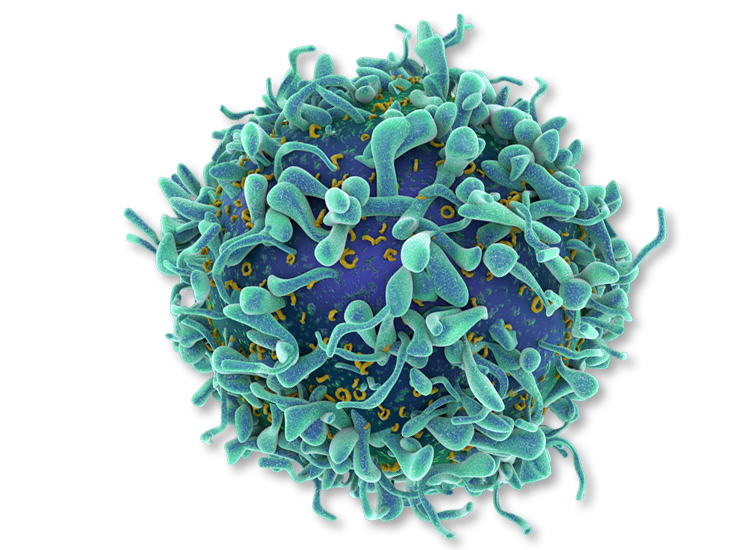Proteomics Services
Proteomic quantification of any protein, in any sample, with any modification, without antibodies.

Proteomic Analysis
Target Sufficiency® is the ability of a target system to respond to a therapeutic. It reflects the abundance and forms of the drug target protein, as well as other key system proteins that connect the target to disease phenotypes and enable response. Proteomic assessment of the target system requires an analysis platform that can simultaneously capture multiple precise protein measurements.
Our platform is built on proteomic targeted mass spectrometry (MS), which provides precise, sensitive, and specific measurements and is the gold standard for protein quantitative analysis. Analyses are multiplexed, which enable simultaneous measurements of dozens of proteins per sample. Molar scale measurements by targeted MS enable analysis of the abundance ratios of key system proteins. Inotiv has developed over 150 targeted protein assays and can rapidly configure a new assay for any protein.
Target Sufficiency® enables direct, quantitative analysis of drug target systems in cells, tissues, and tissue models, including formalin-fixed, paraffin-embedded (FFPE) tissues. Drug targets can be measured in their diverse forms (including sequence or splice variants and post-translationally modified forms) together with their key protein co-regulators that constitute therapeutic target systems. Target Sufficiency® defines the target system in its native cell or tissue environment and enables development of more effective therapeutic strategies and personalized therapies.

[Editorial Article]
Target Sufficiency®: Leveraging Targeted Mass Spectrometry for Quantitative Protein Analysis in Therapeutic Discovery and Development
Assays in Focus
ADC Targets

Antibody drug conjugate (ADC) therapeutics selectively deliver a drug to cells and tissues expressing the ADC target protein. ADC therapeutics are emerging as leading new therapies in oncology and are being explored for treatment of other diseases. One of the key determinants of ADC efficacy is expression of the target protein, which may vary substantially between individuals and tumor types. Indeed, an important clinical question is the minimum level of ADC target expression required to justify selection of specific ADC therapeutics. Although immunohistochemistry assays are available for some ADC targets (e.g., Her2), limited dynamic range precludes quantitation of “low expression” Her2 that may confer therapeutic benefit. Reliable immunoassays are unavailable for many other ADC targets.
Inotiv has developed precise, sensitive targeted MS assays for 27 ADC targets. The assays are linear over two orders of magnitude with measurement variation typically less than 15% and can be done on fresh/frozen and FFPE specimens. Our assays enable selection of cell and xenograft models based on ADC target abundance. Analysis of archival FFPE specimens enables retrospective assessment of relationships between ADC target abundance and clinical trial outcomes.
Applications
Inotiv’s Target Sufficiency® platform delivers unique solutions to enable therapeutic development for multiple diseases and therapeutic modalities.

Oncology drug target systems
Assay panels for multiprotein systems targeted by oncology therapeutics, including immune checkpoints and related immune regulators, growth factor receptor/kinase systems, cell cycle regulators, cell death regulators, hormone receptor systems, and antibody drug conjugate (ADC) targets.
Enabling successful gene editing therapies
Precise abundance measurement of editing nucleases and key host system proteins in tissues that govern both successful editing, as well as off-target effects and toxicity. This information informs dosing strategy to maximize efficacy.
Autoimmune disease target and tissue landscape
Assay panels to quantify therapeutic target abundance, along with immune cell infiltration and key protein mediators of tissue integrity and injury.
Ensuring effectiveness in targeted protein modulation
Routinely achieve measurements over 2-3 orders of magnitude in protein abundance. In addition, Target Sufficiency® can simultaneously verify the presence of critical host proteins, such as ubiquitin E3 ligase proteins to which PROTACS and similar molecules are targeted. Target Sufficiency™ can survey cell and tissue models for preclinical development of drug candidates and prioritize tumor types for therapeutic programs.

Daniel C. Liebler
Vice President of Proteomic Technology at Inotiv and Adjunct Professor of Biochemistry at the Vanderbilt University School of Medicine
Follow me on LinkedIn
“Not only must the target be sufficiently abundant, but other co-regulatory partners of the target protein must also be present to constitute a functional system,” explains Liebler. “Without sufficient protein target and functional partners, a drug cannot elicit efficacy. Therefore, comprehensive analysis of drug target systems at the protein level is essential to the effective development of new therapeutics.”
Frequently Asked Questions (FAQs) for Proteomics Services
What is proteomics?
Proteomics is a biological field of study that focuses on the analysis of proteins, their structures, functions, and interactions with other components of a biological system. It involves the large-scale study of proteins, their abundance, modifications, and dynamics in order to understand their roles in various biological processes.
The information obtained through proteomic analysis provides valuable data for understanding cellular processes, identifying potential drug targets, studying disease mechanisms, and developing diagnostic tools. It plays a crucial role in fields such as molecular biology, medicine, pharmacology, and biotechnology, contributing to advancements in personalized medicine and the development of novel therapies.
How does proteomics differ from genomics?
Proteomics and genomics are both fields of study in molecular biology that are concerned with understanding the structure and function of biological molecules, but they focus on different aspects of biological information.
Genomics primarily deals with the study of genomes, which are the complete set of genes or genetic material present in an organism. It involves the analysis of DNA sequences to identify and characterize genes, study their organization within the genome, and understand their role in various biological processes. Genomics provides insights into the genetic blueprint of an organism and helps in understanding genetic variations, hereditary diseases, and evolutionary relationships.
On the other hand, proteomics is the study of proteomes, which are the complete set of proteins expressed by a cell, tissue, or organism at a specific time or under specific conditions. Proteomics aims to identify, quantify, and characterize proteins, including their structure, modifications, interactions, and functions. It involves techniques such as mass spectrometry, protein separation, and bioinformatics analysis to study the proteome and understand protein expression patterns, post-translational modifications, and protein-protein interactions.
What are mass spec applications for proteomics?
Mass spectrometry (MS) is a long-established analytical technique used in proteomics, the study of proteins and their functions in biological systems. It enables the identification, quantification, and characterization of proteins, peptides, and post-translational modifications (PTMs) with high sensitivity and accuracy. Here are some key applications of mass spectrometry in proteomics:
- Protein Identification: Mass spectrometry is employed for protein identification by comparing the mass-to-charge ratio (m/z) of peptides generated from enzymatic digestion of proteins with databases of known protein sequences. This technique, known as peptide mass fingerprinting (PMF), allows researchers to determine the identity of proteins within complex samples.
- Quantitative Proteomics: Mass spectrometry enables the quantification of proteins in a variety of samples. Techniques such as label-free quantification, stable isotope labeling, and tandem mass tags (TMT) can be employed to measure changes in protein expression levels between samples, such as diseased versus healthy tissues or treated versus untreated samples.
- Post-Translational Modification Analysis: Mass spectrometry is instrumental in the identification and characterization of PTMs, which play crucial roles in protein function and cellular processes. It allows the detection of various PTMs, including phosphorylation, acetylation, methylation, glycosylation, ubiquitination, and more. By mapping PTMs to specific protein residues, researchers can gain insights into protein regulation and signaling pathways.
- Protein-Protein Interactions: Mass spectrometry-based techniques like affinity purification coupled with mass spectrometry (AP-MS) or co-immunoprecipitation followed by mass spectrometry (co-IP-MS) can identify and characterize protein-protein interactions in complex biological systems. By isolating protein complexes and analyzing their composition, researchers can unravel protein interaction networks and study cellular pathways.
- Biomarker Discovery: Mass spectrometry is utilized in the discovery and validation of protein biomarkers, which are indicators of specific diseases or physiological states. By comparing protein profiles between healthy and diseased individuals, potential biomarkers can be identified, aiding in early disease detection, prognosis, and treatment monitoring.
- Proteogenomics: Mass spectrometry can integrate proteomic data with genomic information, allowing researchers to identify novel protein isoforms, confirm predicted gene annotations, and discover coding variants. This approach enhances the understanding of gene expression, alternative splicing, and translation in complex biological systems.
These applications highlight the versatility and significance of mass spectrometry in proteomics research, providing valuable insights into the structure, function, and dynamics of proteins in various biological contexts.
How does proteomic analysis help drug discovery?
Proteomic analysis plays a crucial role in drug discovery by providing valuable insights into the identification and characterization of proteins and their functions within biological systems. Here are several ways in which proteomic analysis contributes to drug discovery:
- Target identification: Proteomic techniques can help identify potential drug targets by analyzing the protein expression profiles of diseased and healthy tissues. By comparing these profiles, researchers can pinpoint proteins that are overexpressed, underexpressed, or modified in disease states, suggesting their involvement in the disease process. These identified proteins can then serve as potential targets for drug intervention.
- Target validation: Once potential drug targets have been identified, proteomic analysis can be used to validate their significance. Researchers can employ techniques such as mass spectrometry to analyze protein-protein interactions, protein-drug interactions, and post-translational modifications. By understanding the role of a target protein and its interactions within a biological system, researchers can determine its suitability as a target for drug development.
- Biomarker discovery: Proteomic analysis allows the identification of disease-specific biomarkers, which are molecules indicative of a particular disease state. By comparing protein profiles between healthy and diseased samples, researchers can identify proteins that are uniquely expressed or modified in the disease condition. These biomarkers can be used for early disease detection, patient stratification, and monitoring the efficacy of drug treatments.
- Mechanism of action elucidation: Proteomic techniques enable researchers to investigate the mechanisms of action of drugs. By studying how a drug interacts with proteins within a biological system, proteomic analysis can provide insights into the molecular pathways affected by the drug. This information helps in understanding how a drug exerts its therapeutic effects and allows for optimization of drug design and development.
- Drug response prediction: Proteomic analysis can aid in predicting individual patient responses to specific drugs. By analyzing protein expression patterns or post-translational modifications in patient samples, researchers can identify predictive markers that indicate how a patient is likely to respond to a particular drug. This information enables personalized medicine approaches, optimizing drug selection for individual patients.
Overall, proteomic analysis provides a comprehensive understanding of the proteome's dynamics and its relationship with diseases and drug treatments. It serves as a powerful tool for target identification and validation, biomarker discovery, mechanism of action elucidation, toxicity assessment, and personalized medicine, ultimately contributing to the discovery and development of new and effective drugs.
 Case Studies
Case Studies
- Target Sufficiency® Enables Key Decisions in Gene Editing Therapeutics
- Target Sufficiency® Enables Key Decisions in Immune Checkpoint Therapeutics
- Target Sufficiency® Enables Key Decisions in Antibody-Drug Conjugate (ADC) Therapeutics
Articles/Publications
- Accelerated Instability Testing Reveals Quantitative Mass Spectrometry Overcomes Specimen Storage Limitations Associated with PD-L1 Immunohistochemistry
- Proteomic characterisations of ulcerative colitis endoscopic biopsies associate with clinically relevant histological measurements of disease severity
- Analysis of Immune Checkpoint Drug Targets and Tumor Proteotypes in Non-Small Cell Lung Cancer
- Targeted Quantitative Mass Spectrometry Analysis of Protein Biomarkers From Previously Stained Single Formalin-Fixed Paraffin-Embedded Tissue Sections



